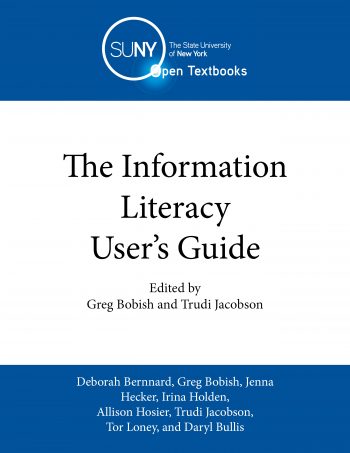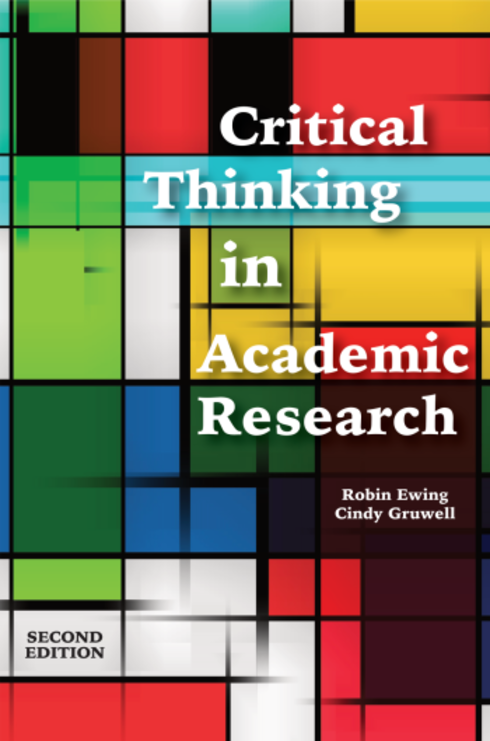What is Information Literacy?
The Association of College and Research Libraries defines Information Literacy as "the set of integrated abilities encompassing the reflective discovery of information, the understanding of how information is produced and valued, and the use of information in creating new knowledge and participating ethically in communities of learning."
Information Literacy is described through a series of frameworks, or core concepts.
- Scholarship as Conversation: pieces of information communicate with each other as they are developed, produced, and consumed
- Research as Inquiry: the research process is a series of asking questions and determining how to move forward as you learn more
- Authority is Constructed and Contextual: what makes a source reliable depends on multiple factors
- Information Creation as a Process: there isn't "one right way" to develop information, you may need to go back to previous steps as you work
- Information Has Value: information is important and there are costs to producing and accessing it
- Searching as Strategic Exploration: as you look for and finds information, you will plan and adjust your approach to searching
For more detailed descriptions of each of these frameworks, visit the Framework for Information Literacy for Higher Education.
Activity Respositories
-
ACRL Framework for Information Literacy SandboxA repository of educational activities and teaching resources related to the ACRL Framework for Information Literacy for Higher Education
-
Project CoraThe Community of Online Research Assignments is an open access respository of research-based assignments
Additional Resources
-
ACRL's Information Literacy in the DisciplinesInformation sorted by subject
-
 Information Literacy User’s Guide: An Open, Online Textbook
by
"Introduces students to critical concepts of information literacy as defined for the information-infused and technology-rich environment in which they find themselves"
Information Literacy User’s Guide: An Open, Online Textbook
by
"Introduces students to critical concepts of information literacy as defined for the information-infused and technology-rich environment in which they find themselves" -
 Critical Thinking in Academic Research - Second Edition
by
"Provides examples and easy-to-understand explanations to equip students with the skills to develop research questions, evaluate and choose the right sources, search for information, and understand arguments."
Critical Thinking in Academic Research - Second Edition
by
"Provides examples and easy-to-understand explanations to equip students with the skills to develop research questions, evaluate and choose the right sources, search for information, and understand arguments."